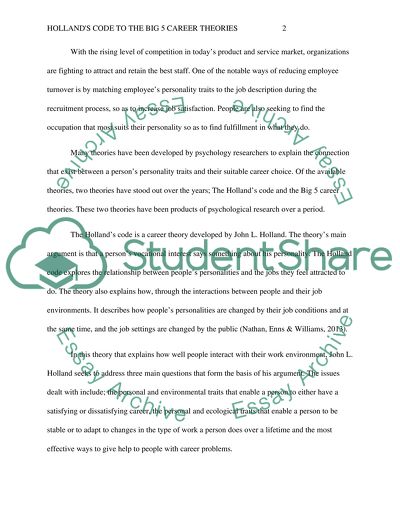Cite this document
(“A comparison of Holland's Code to the BIG 5 career theories Research Paper”, n.d.)
Retrieved from https://studentshare.org/psychology/1669343-a-comparison-of-hollands-code-to-the-big-5-career-theories
Retrieved from https://studentshare.org/psychology/1669343-a-comparison-of-hollands-code-to-the-big-5-career-theories
(A Comparison of Holland'S Code to the BIG 5 Career Theories Research Paper)
https://studentshare.org/psychology/1669343-a-comparison-of-hollands-code-to-the-big-5-career-theories.
https://studentshare.org/psychology/1669343-a-comparison-of-hollands-code-to-the-big-5-career-theories.
“A Comparison of Holland'S Code to the BIG 5 Career Theories Research Paper”, n.d. https://studentshare.org/psychology/1669343-a-comparison-of-hollands-code-to-the-big-5-career-theories.


